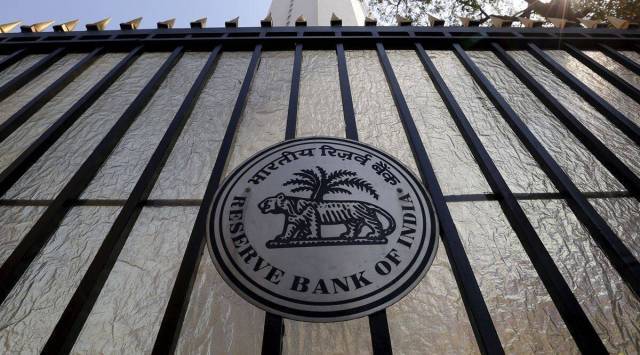RBI defends compromise settlement, says lenders to exercise ‘discretion’
According to the RBI, the primary regulatory objective of the circular -- issued on June 8, 2023 -- is to enable multiple avenues to lenders to recover the money in default without much delay.
 “Such settlements shall be without prejudice to the criminal proceeding underway or to be initiated, if under consideration of the lenders against such borrowers,” the central bank said. (Express Photo)
“Such settlements shall be without prejudice to the criminal proceeding underway or to be initiated, if under consideration of the lenders against such borrowers,” the central bank said. (Express Photo) The Reserve Bank of India (RBI) on Monday defended its controversial circular allowing banks to undertake compromise settlements or technical write-offs in respect of accounts categorised as wilful defaulters or fraud, stating that compromise settlement is not available to borrowers as a matter of right, but a “discretion to be exercised by the lenders based on their commercial judgement”.
According to the RBI, the primary regulatory objective of the circular — issued on June 8, 2023 — is to enable multiple avenues to lenders to recover the money in default without much delay. “Apart from the time value loss, inordinate delays result in asset value deterioration which hampers ultimate recoveries. Compromise settlement is recognized as a valid resolution mechanism under the Prudential Framework on Resolution of Stressed Assets dated June 7, 2019,” the RBI said.
Banks reported as many as 16,044 borrowers with a debt of Rs 346,479 crore in the wilful default category — borrowers who refuse to repay loans despite having the capacity to make payments — as of December 2022 who will be able to approach the lenders for compromise settlement following the RBI decision to change the rules for eligibility. The amount stuck in the wilful default category has jumped by 41 per cent, or over Rs one lakh crore in the last two years from Rs 245,767 crore in December 2020.
“The imperatives for lenders are no different when it comes to recovery from borrowers classified as fraud or wilful defaulter. Continuing such exposures on the balance sheets of the lenders without resolution due to legal proceedings would lock lenders’ funds in an unproductive asset, which would not be a desirable position,” the central bank defended the decision in its FAQ (frequently asked questions) released on Monday.
However, banking sources are intrigued by the RBI’s defence as wilful defaulters are borrowers who have failed to repay loans despite having the capacity to make the payment. Similarly, how can the RBI defend fresh loans after a cooling period of 12 months to a borrower account which was classified as a fraud or wilful default? asked a former senior official of a nationalised bank.
“The cooling period has been introduced as a general prescription for normal cases of compromise settlements, without prejudice to the penal measures applicable in respect of borrowers classified as fraud or wilful defaulter as per the Master Directions on Frauds dated July 1, 2016 and the Master Circular on Wilful Defaulters dated July 1, 2015,” the RBI said.
“I think the clarification required is about the cooling period. Earlier a bank would never touch a wilful defaulter again,” the official said. What has made banking sources suspicious is the RBI’s comment about “discretion to be exercised by the lenders” while accepting a compromise settlement and the possibility of banks and borrowers misusing the “discretion”.
According to the RBI, all such decisions are required to be taken by lenders as per their board approved policies, instead of adopting an ad-hoc approach in each case. “The circular (June 8, 2023) further strengthens the regulatory guidance by mandating that all such cases of compromise settlement involving borrowers classified as fraud or wilful defaulter must be approved by the board,” the RBI said.
“Such settlements shall be without prejudice to the criminal proceeding underway or to be initiated, if under consideration of the lenders against such borrowers,” the central bank said.
However, bank unions have come out strongly against the RBI move. “We firmly believe that allowing compromise settlement for accounts classified as fraud or wilful defaulters is an affront to the principles of justice and accountability,” said All India Bank Officers’ Confederation (AIBOC) and All India Bank Employees Association (AIBEA), representing 6 lakh bank employees. “It not only rewards unscrupulous borrowers but also sends a distressing message to honest borrowers who strive to meet their financial obligations,” they said.
As long as larger policy concerns are suitably addressed and the costs of malafide actions are made to be borne by the perpetrators, early recoveries by lenders should be a preferred option, subject to safeguards, the RBI said. “Further, continuation of criminal proceedings underway or to be initiated against the borrowers classified as fraud or wilful defaulter, would ensure that perpetrators of any malafide action do not go scot-free,” the RBI said.
Defending compromise settlement, the RBI said restructuring in general entails the lenders having a continuing exposure to the borrower entity even after restructuring and hence, in case of borrowers classified as fraud or wilful defaulter, permitting lenders to continue their credit relationship with the borrower entity would be fraught with moral hazard. “On the other hand, a compromise settlement entails a complete detachment of the lender with the borrower. Therefore, permitting lenders to settle with the borrowers as per their commercial judgement would enhance recovery prospects,” the RBI said.
Technical write-off is a normal banking practice undertaken by the lenders to cleanse the balance sheets of bad debts which are either considered unrecoverable or whose recovery is likely to consume disproportionate resources of the lenders. “However, such technical write-offs do not entail any waiver of claims against the borrower and thus the lenders’ right to recovery is not undermined in any manner. Therefore, the defaulting borrowers are not benefited in any manner and their legal obligation as well as the costs of such defaults for them remain unchanged vis-à-vis the position prior to technical write-offs,” it said.
“It (June 8 circular) rationalises the existing regulatory guidance to banks on compromise settlements, consolidating various instructions issued over the years. It also tightens some of the related provisions and ensures greater transparency,” the RBI said. “By providing a clear regulatory framework, it enables other regulated entities, particularly cooperative banks, to undertake compromise settlements as part of the normal resolution efforts,” it said.




































